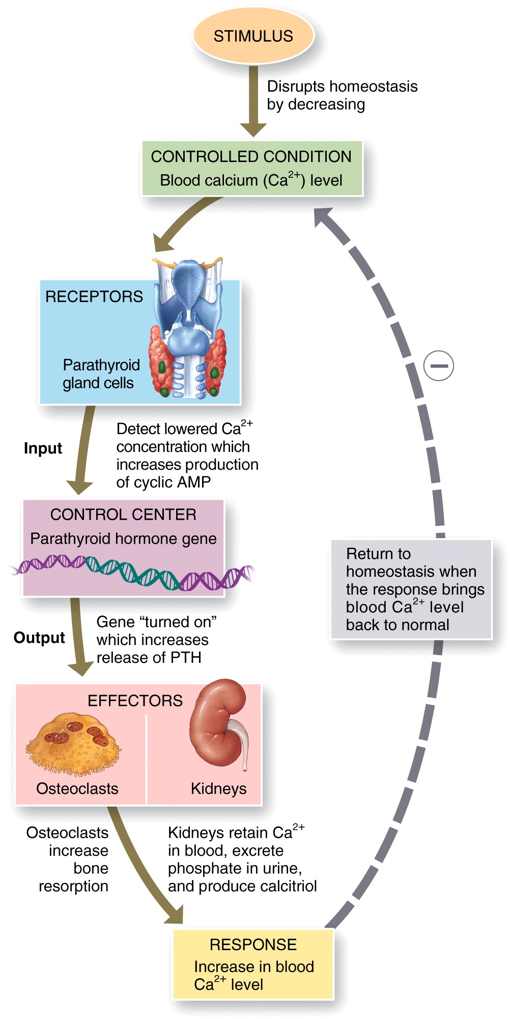 |
| Previous Image | Next Image |
| Description: Bones store 99% of the body’s calcium. The parathyroid gland secretes Parathyroid hormone (PTH) when calcium levels drop. Osteoclasts are stimulated to increase bone resorption and calcium is released. PTH also stimulates the production of calcitriol by the kidneys to increase calcium absorption in the intestines. Calcium helps strengthen your bones and is also needed for muscle contractions and proper nervous system function. Besides your teeth, there's no harder structure in your body than your bones. Your bones form the sturdy framework of your body, just like the boards in the walls of your home make up the sturdy framework of your house. But what makes your bones so hard? Well, your bones are hardened by minerals. Minerals are inorganic compounds needed by your body to regulate chemical reactions and maintain structures. There are many different minerals needed for optimum health, but when we're talking about bone strength, calcium is at the top of the list. You get calcium into your body through food sources such as dairy products, legumes, almonds and some dark green vegetables. In this lesson, you will learn more about calcium and what happens when you have too little or too much of this mineral in your body. If you were to look inside your body, you would see that 99% of calcium is found in your bones and teeth. The amount that's left over might be small, but that doesn't mean it's unimportant. Calcium is a mineral needed not only for strengthening bones and teeth, but also for proper muscle contractions, the transmission of nervous system messages, and other important functions dealing with the regulation of heart function and blood clotting. It's hard to believe that your body only requires 1% of the available calcium to carry out all of these important non-bone-related functions. Yet this system works because your body uses your bones as somewhat of a storage locker for calcium. You see, the level of calcium floating around in your blood is very closely monitored by your body. If you're consuming too little calcium or calcium is not making it into your body due to a problem with calcium absorption, your blood calcuium level drops, altering your body to the calcium deficiency that called bone resorption which is the process of breaking down bone to release minerals. Picture Stats: Views: 382 Filesize: 384.38kB Height: 1019 Width: 510 Source: https://biology-forums.com/index.php?action=gallery;sa=view;id=40373 |
